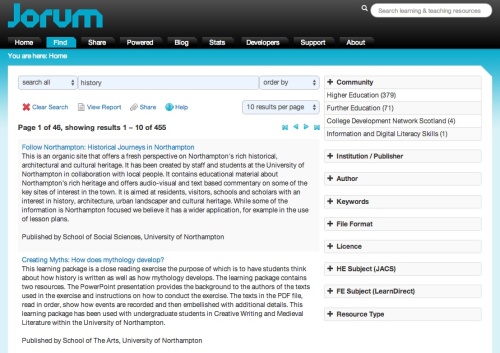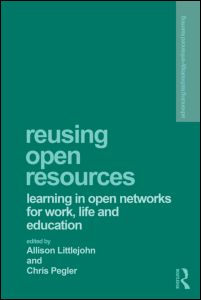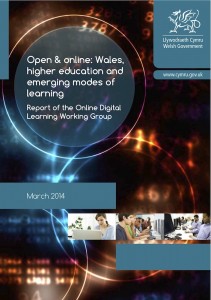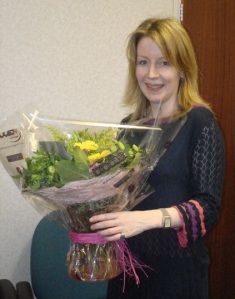Earlier this month I went along to the second Opening Educational Practices in Scotland Forum where I’d been invited to present an update on the Scottish Open Education Declaration.
OEPS Update
The event began with an update from the OEPS Project team outlining their progress in supporting a network of open education practitioners, developing a Scottish open education hub, collating case studies and supporting the development of new content and practice. There was considerable discussion as to the role of the hub, which has been revised following discussions at the first OEPS forum. Although the hub will facilitate aggregated OER search, it will focus more on being a community hub for open education practice. For a comprehensive update on OEPS progress, the project recently published their first report here: First OEPS Project Report.
An international perspective on opening educational practices – Laura Czerniewicz
Undoubtedly the highlight of the morning, was Laura Czerniewicz remote presentation from Cape Town on international perspectives on opening educational practices. Laura spoke about how openness and the internet have reconfigured the post traditional education landscape and presented a series of case studies from South Africa. Laura went on to suggest that open education exists in an extremely contested and complex environment. In Africa there has been some scepticism about open education as it is seen as an extension of the commodification of knowledge, however Africa has a strong narrative culture of sharing which can be harnessed to encourage the sharing of open education resources and practice (Jane-Frances Agabu, National Open University of Nigeria). One of the most interesting and challenging points Laura raised in her presentation centred on the legitimacy of piracy as a means of sharing educational content in the face of rising text books costs.
“Is it unethical to want to be educated or is it unethical to charge so much for books? To have to pay that amount when you can’t afford it?”
A valid question indeed.
Towards the end of her talk Laura also discussed the potentially valuable role of open education policy, although she also cautioned:
“Policy is great, but policy without budget can be problematic.”
This is certainly a point I would agree with. In order to make an impact, policy ideally needs to be backed up by adequate resources and funding, however this also begs the question of how to support unfunded policies that emerge from the community such as the Scottish Open Education Declaration.
The Scottish Open Education Declaration – the way forward
In the afternoon I presented two workshops on future directions for the Scottish Open Education Declaration. The second draft of the Declaration was published by Open Scotland in December 2014, after receiving a small amount of very welcome funding from the OEPS Project. Shortly afterwards, the ALT Scotland SIG forwarded the declaration to Angela Constance, the new Cabinet Secretary for Education and Lifelong Learning. Although Open Scotland has not been in a position to actively promote and disseminate the declaration recently, primarily due to lack of funding, it was evident from participants at the workshops that there still seems to be real appetite across all sectors of Scottish education to continue taking the Declaration forward. Several participants said that they had found the declaration useful for raising awareness of open education within their own institution and for triggering discussions about open education at policy level. The Scottish Funding Council also appear to see some merit in the Declaration and during discussions with workshop participants and members of both Open Scotland and the OEPS Project, we were able to identify several steps to take the Declaration forward.
Evidencing the Declaration
While the Declaration may have some value as an aspirational statement of intent, clearly it will carry considerably more weight if each point can be evidenced by examples of existing practice in Scotland and further afield. Examples of existing practice could be crowd sourced and collected via the Declaration Comment Press site and collated from evidence gathered by the OEPS Project.
Evidence of Impact
In order to highlight the value of both open education and the Declaration at government level it would be useful to be able to provide evidence of positive impact. Assessing the impact of open education initiatives is always difficult as quantitative measures have a tendency to miss the bigger picture and, arguably, the ethos of open education. Gathering qualitative user stories and case studies is likely to be a more useful way to provide evidence of the impact of the Declaration. The case studies being collated by the OEPS Project will hopefully be of particular value here, but continued efforts should be made to gather user stories from across the sector.
Harmonising the Declaration with current policy
When the first version of the Declaration was drafted in early 2014, we made a conscious effort to ensure that it tied in with Scottish Government policies and strategic objectives. Clearly the policy landscape has changed over the last twelve months and it would be useful to revisit the Declaration to ensure that it supports current policy particularly with regard of formal and informal learning, social inclusion and widening access.
Engaging Universities Scotland
A number of bodies and agencies have been identified that could potentially provide valuable support for the Declaration, one of which is Universities Scotland. Although an encouraging number of university colleagues have already made valuable contributions to the declaration, it would be beneficial to engage senior managers to ensure that open education is supported at policy level across the higher education sector.
Engaging schools, colleges and the third sector
It is important that the Declaration represents all sectors of Scottish education; therefore it is critical that we find routes to engage not just higher education but also schools, colleges and the third sector. We would welcome suggestions from colleagues as to how to raise awareness of the Declaration and encourage engagement with open education across all sectors of Scottish education.
The Scottish Open Education Declaration is an open community draft and we continue to encourage all those with an interest in open education in Scotland and beyond to comment on the document here http://declaration.openscot.net/




